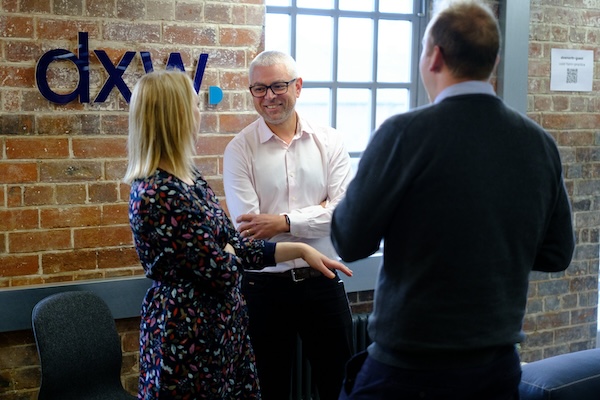Better services for better value

We need better quality, better outcomes and better value
For the last few years, the gains made to reform digital delivery in government have rolled back.
Since 2020, I’ve seen more and more of what I can only describe as traditional IT contracts go out for tender. It felt like there was way less engagement with small and medium-sized businesses. Alongside this, my teammates described being bogged down in arguments over ways of working, process and outright disregard for iterative, user-centred development. They also saw silos springing up between disciplines like research and development.
The recent Public Accounts Committee report on digital transformation in government resonated with me. Lots of it chimes with our own experience. But nothing has come out of the party conferences to make me think anyone’s taking the challenge seriously.
With all that in mind, here’s the change I want to see. 4 fundamentals to making public services work for people. That will get us better quality, better outcomes and better value.
1. Make teams accountable for outcomes
In our experience, iterative, responsive, user-centred learning is no longer valued. Services built recently appear to be stuck in Beta, with little or no further investment. There’s no public accountability for their performance.
Restoring a focus on outcomes means understanding how well services meet users’ needs. This means modernising the Service Standard and controls.
It also means changing how supplier teams are commissioned. The current default is bulk capability contracts, rather than right-sized multidisciplinary teams. As a result, contracts have bloated, teams are siloed, and no-one’s on the hook for outcomes.
2. Empower stable leaders
We’ve seen a lot of turnover in leadership. Loss of expertise leads to projects cut adrift within organisations. They don’t have the sponsorship or authority to deliver meaningful results.
Government needs senior leaders engaged with delivery. People who champion teams building services. Who know the difference between asking if something works or whether it’s just ‘done’. Promoting or hiring this expertise won’t deliver results quickly enough. Current leaders need training to understand how to sponsor and govern modern services.
Leaders who appreciate multidisciplinary teams and user-centred working get better services and better value. They know what’s needed to deliver services that work for users and Civil Service teams. They understand the risks created by not delivering this change. They cut through wasteful processes to support the people they serve. Care and attention like this cascades through organisations.
3. Work in the open
As I said before, teams are decoupled from outcomes. It should be clear when a contract is put out for tender what an organisation is hoping to achieve. But, today, it often isn’t. It’s typically a shopping list of skills or capabilities.
Our best work is with teams who engage us and discuss their ambitions early on. When teams are open and transparent about the business case and what they don’t know.
The expertise of small and medium-sized businesses can be transformative. The right engagement can reframe a contract, making it laser-focused on acute problems. This kind of open commissioning does happen, but it’s not common.
4. Prioritise value over price
Price-per-head dominates commercial conversations. But there’s no point hiring cheaper people if services are less reliable and slower to build.
Shifting the focus to value for money means understanding the quality of what gets built. It means commercial teams who understand what shape a team needs to be to deliver an outcome. And, once again, it means proper accountability for past performance.
This also opens up questions about social value. As an employee-owned company, our success isn’t judged by our performance on the stock market or external shareholders. We’re committed to building high quality, sustainable services. In fact, it’s in our deeds. We’re a tight-knit team who have worked together to meet big challenges across the public sector. Those values are worth taking into consideration.
Within the next 15 months there’s going to be a new government. Any reform agenda will come with huge public expectations and severely restricted finances. But it doesn’t need to cost more to do better.
The changes I want to see are all inspired by the experiences we’ve had at dxw. These experiences are getting rarer, but there’s an opportunity coming to change that. There are great teams out there still doing great work, despite the inertia.
Better, more cost-effective public services are within reach.